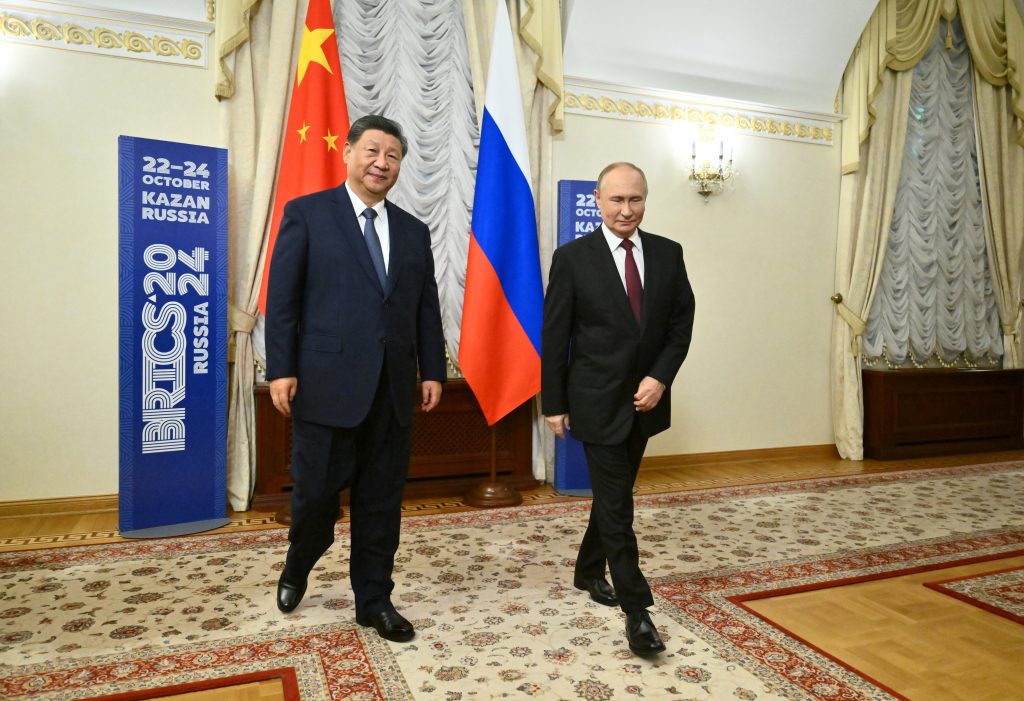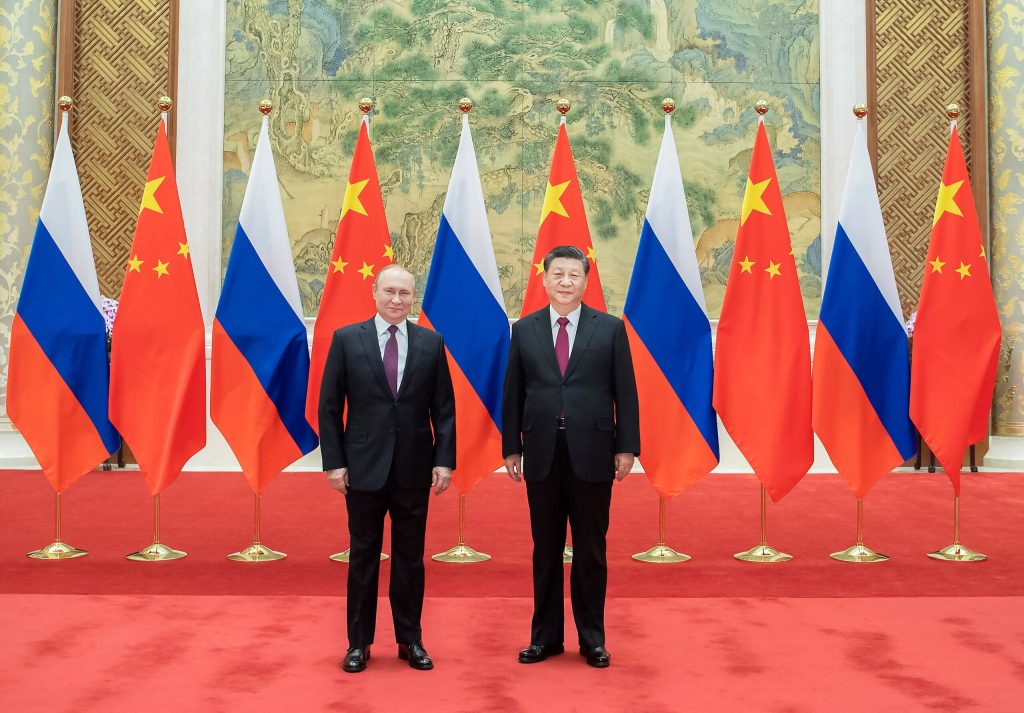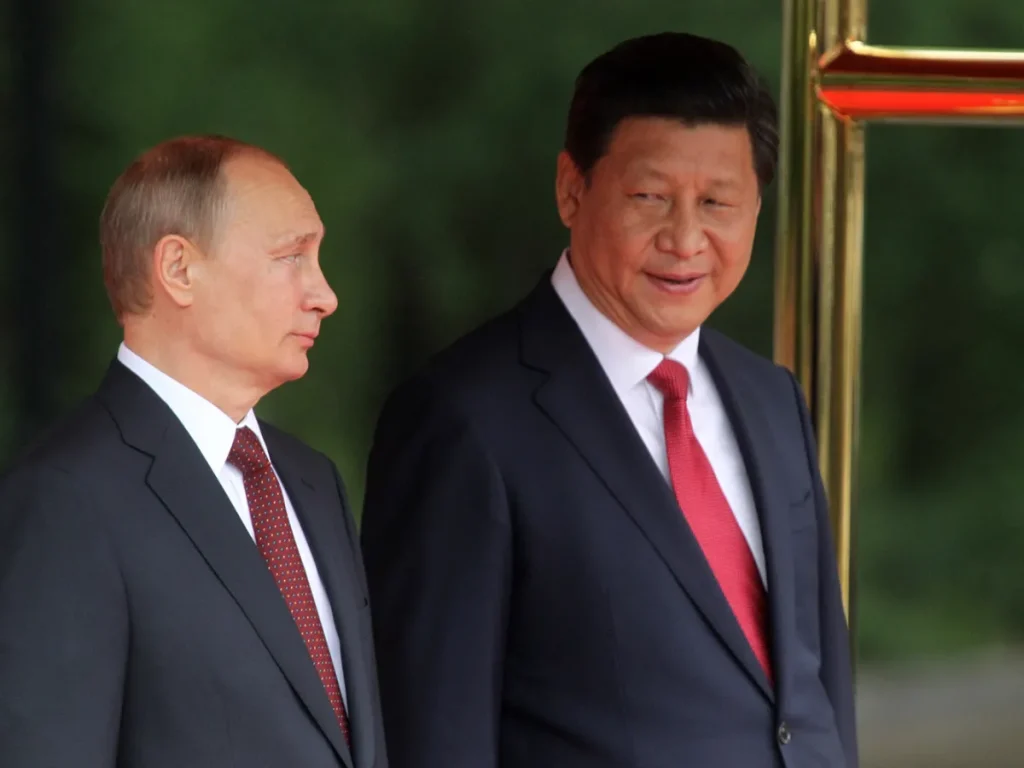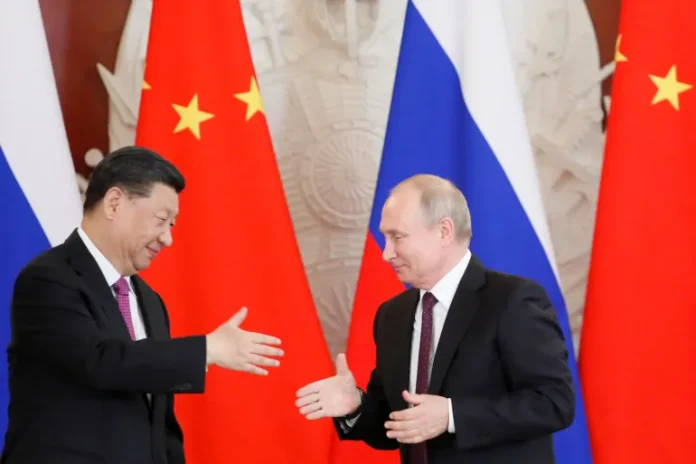Chinese President Xi Jinping reaffirmed the strength of the strategic partnership between China and Russia during a meeting with Russian President Vladimir Putin, emphasizing that their cooperation is a stabilizing force in a chaotic international landscape. Speaking at the opening of the BRICS summit in Kazan, Russia, Xi highlighted the deepening ties between the two nations as the world undergoes significant changes, some of which he said have not been seen in a century.
“The world is going through changes unseen in a hundred years, the international situation is intertwined with chaos,” Xi told Putin. However, he expressed confidence that the friendship between China and Russia would endure for generations, and that both countries would continue to fulfill their responsibilities to their people. Xi’s comments reflect the growing strategic partnership between the two most powerful rivals of the United States, which they accuse of promoting instability through aggressive Cold War-style policies.

In May, Xi and Putin vowed to usher in a “new era” of cooperation, positioning themselves as counterweights to the U.S., which they describe as an increasingly dominant global force sowing discord. Both leaders have found common ground in pushing back against what they see as historical humiliations—the collapse of the Soviet Union in 1991 for Russia, and centuries of European colonial dominance for China. They portray the West, particularly the U.S., as decadent and in decline, while advocating for a multipolar world order.
Russia is currently engaged in a prolonged conflict with NATO-backed Ukrainian forces, while China faces pressure from a concerted U.S. effort to curtail its growing economic and military power. Both nations have united in their opposition to U.S. policies, which they view as a threat to their sovereignty and global influence. The Biden administration, in turn, has labeled China as its most significant competitor and Russia as the largest state threat. President Joe Biden has made several pointed remarks about the leadership of both countries, referring to Xi as a “dictator” and Putin as a “killer” and a “crazy SOB,” comments that have drawn criticism from both Beijing and Moscow.
During their meeting, Putin referred to Xi as a “dear friend,” echoing the sentiment of a deep bond between the two leaders. He reiterated that Russian-Chinese cooperation is a key factor in maintaining global stability. “Russian-Chinese cooperation in world affairs is one of the main stabilizing factors on the world stage,” Putin said. He also emphasized the importance of continued coordination between the two countries on various multilateral platforms, which he argued is essential for ensuring global security and establishing a just world order.

For China, the BRICS group—comprising Brazil, Russia, India, China, and South Africa—has emerged as a crucial platform for advancing the interests of emerging markets and developing nations. Xi described BRICS as the “most important platform for solidarity and cooperation between emerging market countries and developing countries in the world today.” He also noted that the bloc serves as a “mainstay force” in promoting a multipolar world, where power is more evenly distributed, and economic globalization is inclusive and tolerant.
The growing alignment between Russia and China has raised concerns in the West, particularly in the context of global security and economic competition. The United States has increasingly sought to build coalitions with its allies to counterbalance the influence of both Moscow and Beijing. However, the Sino-Russian partnership appears resilient, bolstered by their shared opposition to U.S. dominance and their desire to reshape the global order in their favor.
Xi’s comments at the BRICS summit underscore China’s commitment to deepening its partnership with Russia, despite Western sanctions and criticism. Both nations have faced isolation from the West—Russia over its actions in Ukraine and China over its assertive policies in the South China Sea, human rights concerns, and economic practices. Yet, their cooperation appears to be strengthening, with both countries positioning themselves as leaders of a new global movement that seeks to challenge the traditional dominance of Western powers.

The partnership between China and Russia is seen as a cornerstone of their efforts to create a more balanced global order. As Xi noted, their relationship is based on mutual respect and shared goals, and it will continue to evolve as they navigate the shifting geopolitical landscape. While tensions with the U.S. are unlikely to dissipate anytime soon, China and Russia seem determined to forge their own path, using platforms like BRICS to rally support from other nations that feel marginalized by the West.
As the BRICS summit continues, the global community will be closely watching the developments between these two major powers. With China and Russia increasingly aligned in their opposition to Western policies, their strategic partnership could have far-reaching implications for global security, economic stability, and the future of international diplomacy.




